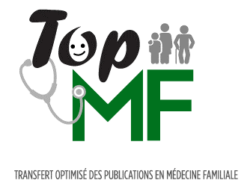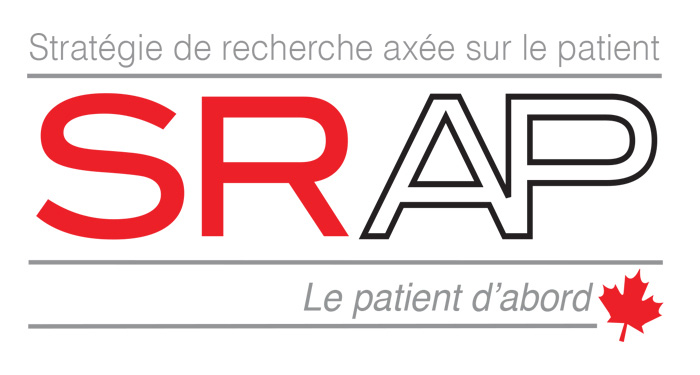Cet épisode fait partie de la série de balados du R1Q Première ligne. Abonnez-vous dans le Apple Podcasts, sur Spotify ou par YouTube Podcasts pour ne manquer aucun épisode!

Écoutez l’épisode ici >> (enregistré en octobre 2024)
Prenez part au sondage d’évaluation! Merci de répondre à ce court sondage (environ 5 minutes) pour nous aider à bonifier la série de balados!
Déclaration de conflits d’intérêts : L’animatrice (Dre Emma Glaser), l’invité (Angie Shen) et l’équipe balados du R1Q n’ont aucun conflit d’intérêt à déclarer.

Animatrice : Dre Emma Glaser, MD-MSc CMFC, médecin de famille, GMF-U Bordeaux Cartierville
Invités :
- Angie Shen, MD, département de soins palliatifs du CHUM
Objectifs :
- Identifier des informations de base concernant la thérapie à la psilocybine en soins palliatifs (ex. : indication, contre-indication, méthode de prescription, effets secondaires, coût, considérations éthiques, etc.).
- Expliquer le rôle potentiel de la psilocybine dans la gestion de la détresse existentielle chez les patients en soins palliatifs.
- Discuter des études actuelles et de leurs limites concernant l’utilisation de la psilocybine en soins palliatifs.
Messages clés
- La détresse existentielle et psychologique touche de nombreux patients en soins palliatifs.
- La psilocybine offre un potentiel thérapeutique fascinant à explorer, mais les études actuelles sur la psilocybine, bien que prometteuses, sont encore limitées en nombre et peuvent présenter des biais.
- Une approche multidimensionnelle, incluant la psychothérapie et l’accompagnement, est essentielle pour traiter la détresse existentielle.

Cet épisode est accompagné d’une capsule de formation accréditée de TopMF (Transfert optimisé des publications en médecine de famille).
Si vous n’êtes pas déjà abonné à TopMF, profitez du rabais sur les frais d’abonnement disponible pour les membres du R1Q.
Références et ressources
- Agrawal, M.; Richards, W.; Beaussant, Y.; Shnayder, S.; Ameli, R.; Roddy, K.; Stevens, N.; Richards, B.; Schor, N.; Honstein, H.; et al. (2024). Psilocybin-assisted group therapy in patients with cancer diagnosed with a major depressive disorder. Cancer. 1;130(7), 1137-1146. : DOI: 10.1002/cncr.35010.
- Barrett, F.; Johnson, M.; Griffiths, R. (2016). Validation of the revised Mystical Experience Questionnaire in experimental sessions with psilocybin. J Psychopharmacol. 29 (11), 258-269. DOI: 10.1177/0269881115609019.
- Bauereiß, N.; Obermaier, S.; Özünal, S.E.; Harald, B. (2018). Effects of existential interventions on spiritual, psychological, and physical well-being in adult patients with cancer: Systematic review and meta-analysis of randomized controlled trials. Psychooncology. 27 (11), 2531-2545. DOI: 10.1002/pon.4829.
- Griffiths, R.; Johnson, M.; Carducci, M.; Umbricht, A. .; Richards, W.; Richards, B.; Cosimano, M.; Klinedinst, M. (2016) Psilocybin produces substantial and sustained decreases in depression and anxiety in patients with life-threatening cancer: A randomized double-blind trial. J Psychopharmacol. 30 (12), 1181-1197. DOI: 10.1177/0269881116675513.
- Grob, C.; Danforth, A.; Chopra, G.; Hagerty, M. .; McKay, C.; Halberstadt, A.; Greer, G. (2011). Pilot study of psilocybin treatment for anxiety in patients with advanced-stage cancer. Arch Gen Psychiatry. 68 (1), 71-8. DOI: 10.1001/archgenpsychiatry.2010.116.
- Herrington, A. (2022, 16 décembre). Quebec Approves Health Coverage For Psilocybin Therapy. Forbes. https://www.forbes.com/sites/ajherrington/2022/12/16/quebec-approves-health-coverage-for-psilocybin-therapy/?sh=2dac6cb27fa9 .
- Inconnu. (2021, 27 Août). Existential distress. Caresearch. https://www.caresearch.com.au/Evidence/Practice-Ready-Evidence/Clinical-Evidence-Summaries/Suffering/Existential-Distress#:~:text=Existential%20distress%20at%20the%20end,threats%20to%20self%2Didentity.%20%5B .
- Lewis, B.; Garland, E.; Byrne, K.; Durns, T.; Hendrick, J.; Beck, A.; Thielking, P. (2023). HOPE: A Pilot Study of Psilocybin Enhanced Group Psychotherapy in Patients With Cancer. J Pain Symptom Manage. 66 (3), 258-269. DOI: 10.1016/j.jpainsymman.2023.06.006.
- MacCallum, C.; Lo, L.; Pistawka, C.; Deol, J. (2022). Therapeutic use of psilocybin: Practical considerations for dosing and administration. Front Psychiatry. 13: 1040217. DOI: 10.3389/fpsyt.2022.1040217.
- Mitchell, A.; Chan, M.; Bhatti, H.; Halton, M.; Grassi, L.; Johansen C.; Meader, N. (2011). Prevalence of depression, anxiety, and adjustment disorder in oncological, haematological, and palliative-care settings: a meta-analysis of 94 interview-based studies. Lancet oncol. 12 (2), 160-74. DOI: 10.1016/S1470-2045(11)70002-X.
- Parchett-Marble, R.; O’Sullivan, S.; Tadwalkar, S.; Hapke, E. (2022). Psilocybin mushrooms for psychological and existential distress. Can Fam Physician. 68 (11), 823-827. DOI: 10.46747/cfp.6811823.
- Pollan, M. (2018). How to Change Your Mind: What the New Science of Psychedelics Teaches Us About Consciousness, Dying, Addiction, Depression, and Transcendence; Penguin Press: New York.
- Ross, S.; Agin-Liebes, G.; Lo, S.; Zeifman, R.; Ghazal, L.; Benville, J.; Corso, S.; Real, C.; Guss, J.; Mennenga, S. et al. (2021). Acute and Sustained Reductions in Loss of Meaning and Suicidal Ideation Following Psilocybin-Assisted Psychotherapy for Psychiatric and Existential Distress in Life-Threatening Cancer. ACS Pharmacol Transl Sci. 18;4 (2), 1165-1180. DOI: 10.1021/acsptsci.1c00020.
- Ross, S.; Bossis, A.; Guss, J.; Agin-Liebes, G.; Malone, T.; Cohen, B.; Menenga, S.; Belser, A.; Kalliontzi, K.; Schmidt, B. et al. (2016). Rapid and sustained symptom reduction following psilocybin treatment for anxiety and depression in patients with life-threatening cancer: a randomized controlled trial. J Psychopharmacol. 30 (12), 1165-1180. DOI: 10.1177/0269881116675512.
- Yaden, D.; Nayak, S.; Gukasyan, N.; Anderson, B.; Griffiths, R. (2022). The Potential of Psychedelics for End of Life and Palliative Care. Curr Top Behav Neurosci. 56: 169-184. DOI: 10.1007/7854_2021_278.







